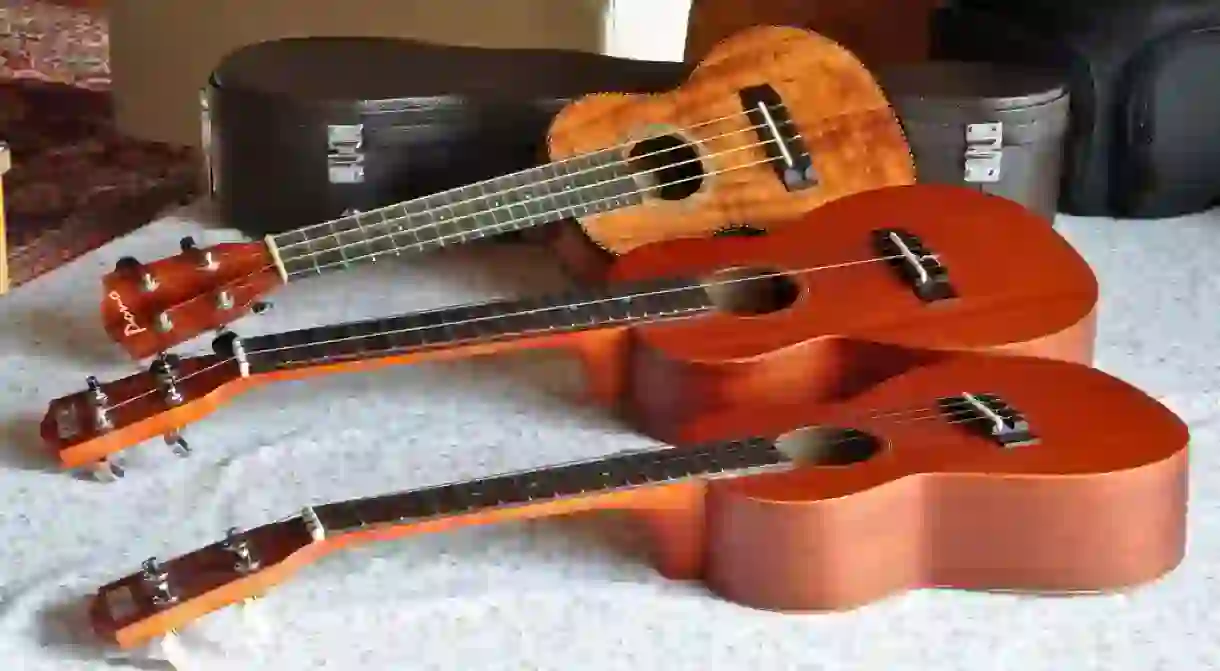A Brief History of the Ukulele

The Hawaiian ukulele is the highlight of many artists’ songs around the world. From Hawaii’s own Bruddah Iz to pop rock group Twenty One Pilots, the ukulele is now a household name among musicians of all backgrounds. Discover how the little string instrument came to be.
To understand the history of the ukulele, it’s essential to understand the history of immigration in Hawaii. In the mid-to-late 1800s, immigrants arrived from China, Japan, Portugal, and the Philippines with contracts to work on the sugarcane plantations. The Portuguese immigrants, mainly hailing from Madeira and the Azores, introduced the islands to malasadas—deep-fried pastries loved by Hawaii’s locals—and small guitars. The cavaquinho, also called a machete, was a small four-stringed instrument used by the laborers to relax and kanikapila (hold a jam session) after a hard day in the fields. Hawaiians loved the way the players’ fingers jumped back and forth on the strings, and named their variation of the instrument ‘ukulele’—which translates to jumping flea.
The ukulele grew in popularity within Hawaii, and the monarch himself, King David Kalakaua, soon embraced it. The King, also a musician, is usually credited with creating the contemporary style of ukulele music in today’s hula ‘auana (modern hula).

Today, the instrument is prized and celebrated in Hawaii and the most revered ukulele makers in the world still hail from the island chain. Instrument makers at Kamaka, Kanile‘a, Ko‘olau, and KoAloha craft sweet-sounding ukuleles at their workshops, as they have done for generations.
Genuine to its origin, the ukulele is a true polyethnic instrument played in all genres of music by both novice and professional musicians across the globe. Some of the most iconic modern ukulele tunes are “Somewhere over the Rainbow” by Israel Kamakawiwo’ole, “I’m Yours” by Jason Mraz, and “Hey, Soul Sister” by Train.
Every summer, Oahu, Maui, Kaua‘i, and the Big Island organize a ukulele festival to celebrate the instrument and its role in Hawaiian culture. Ukulele aficionados and local musicians gather for the one-day event, and melodies draw visitors to the stage of performers throughout the day. Festivities include games, ukulele displays, instrument giveaways, local food booths, shopping, and lots of music.













